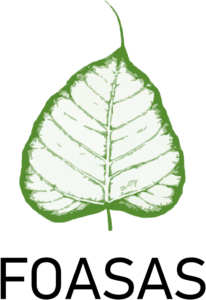The Initiative For Fair Open Access Publishing In South Asian Studies ~ The 2020 Manifesto
No Comments yet The 2020 Manifesto for Fair Open Access Publishing in South Asian Studies
The 2020 Manifesto for Fair Open Access Publishing in South Asian Studies
Profiteering and restricted access have led to a crisis in academic publishing. The Fair Open Access movement is best promoted by mobilizing individual disciplines. With this manifesto, we, an open group of scholars of classical and modern South Asian Studies, declare our support for Fair Open Access publishing.
§1 As is well known, the impact of publications is very often contingent on factors independent of the quality of the research or the competence of the authors. This includes that the research is published in a renowned journal (or other publication medium), by a renowned editor, or – and this has become a major problem – by a prestigious publishing house.
§2 Most of the prestigious publication media are nowadays controlled by a small number of profiteering international publishers. These companies often sell their products at unjustifiably high prices. Much of the editorial work, on the other hand, is outsourced to researchers (or their co-workers, assistants, employees, secretaries etc.). Because they depend on the prestige capitalized on by the publishers, they generally do this without payment. This situation has led to a real crisis in academic publishing.
§3 The Open Access (OA) movement is a reaction to this development: the advance of digitization has made it easy to make the results of research freely available on the internet. OA publishing offers free access to research, regardless of an individual’s financial means or affiliation with a subscribing institution. In the OA model, the individual reader does not pay (except, of course, in the case of printed works). Instead, the publication costs are borne by universities, libraries, scholarly societies, professional associations or other scholarly institutions. While in the wake of this development a number of institutions have founded in-house publishing projects, some commercial publishers have started to offer OA as well.
§4 In order to compensate for the revenue losses resulting from the free availability of OA publications, however, some profiteering publishers have begun to calculate special fees – imposed on the authors or their institutions. Most often, these fees are unjustifiably high and overcompensate for the production costs. As a growing number of academic institutions nowadays demand that the publications of their employees be OA, they are willing to pay these fees. They even regularly schedule a special budget to finance the publishers.
§5 Ultimately, however, it is the tax payers who have to pay, often several times: funding for research and researchers, library budgets for subscription fees, acquisition of overpriced books, processing costs charged by the publishers for OA publications etc. The only reason this system functions is that researchers and their institutions are dependent on the prestige that profiteering publishers have capitalized on for commercial benefit.
Go to (incl. List of Publishers & Journals): https://foasas.org
You May Also Like
Comments
Leave a Reply








